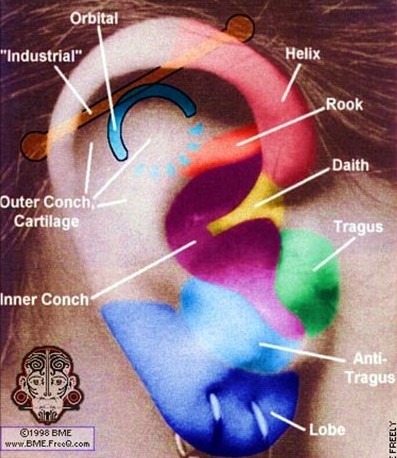What is Globus Sensation?
Globus sensation is identified by patients as a persistent feeling of “lump in the throat”, when in fact, no lump exists. The patient complains of persistent feeling of stuck up phlegm or some sort of obstructive material lodged in the throat.
Previously, this condition was named as globus hystericus, as the symptom suggests being psychiatric in nature. This time, this condition is identified medically as globus pharyngis.
Unlike any other “lump in the throat” feeling conditions, globus sensation does not present difficulty in swallowing food or drink. It is only known significantly for its discomforting effect to the patient.

Globus sensation is a common phenomenon. According to epidemiological reports, this condition emerges frequently in the general population. From time to time or at least once in a person’s life, globus sensation is experienced.
Based on a study made on globus sensation, about a good 45% of 147 healthy people have had experienced this sensation. Stress and episodes of anxiety are linked to such occurrence. It is also said to be common among women.[2 ]
A common misconception is that globus sensation is cancer related. Globus is rarely a symptom of throat cancer. [5]
In order to make sure that an underlying disease is not causing such sensation, one may consult the doctor for testing:
- X-ray. This is necessary to rule out the possibility of mediastinal tumors.
- Endoscopy. This is done with the use of endoscope which is inserted orally to view the throat for problems. This can rule out possible conditions such as reflux esophagitis and other conditions related to the throat.
- Videofluoroscopy of the esophageal region in vertical, supine and prone positions to assess abnormal esophageal clearance.[4]
- Esophogeal Manometry this measures the pressure in your esophagus and at the connection between your esophagus and your stomach. (esophogeal sphincter pressure)[7]
Globus Sensation Symptoms
Globus sensation has a number of symptoms and these are the following:
- Persistent feeling of painless lump stuck in the throat.
- Feeling of constriction and tightness in the throat.
- Most occurrences are between meals.
- Dysphagia is not usually felt. Patient seems capable to eat and drink food despite the discomfort.
- Some complain that the “lump” is mobile (movable).
- Others experience hoarseness of voice and easy tiring as the sensation progresses.
Globus Sensation Causes
To date, no definite cause for globus sensation has been identified. However, various factors have been presented that seem to trigger this condition. The sensation is often associated to an ongoing inflammation of the throat. A lesion in the mucosal lining can cause globus sensation. This can be in a form of ulcer or from a trauma or injury. The lesion does not directly cause it but somehow induces an uneasy feeling in the throat. Most surgeons of the throat (ENT) would present these as triggering factors:
- Stress. It has been noted that many of the affected are stressed out or are anxious when globus sensation emerges. This can be supported as there would be an increase in muscle tension when one is distressed or anxious.
- Lack of rest. This factor is believed influential as this can promote stress, ergo increasing muscle tension.
- Voice straining. Overworking and overuse of the vocal cords can trigger globus sensation.
- Smoking. As mentioned earlier, non-smokers are not spared with globus sensation. Nonetheless, smokers are greatly affected compared to non-smokers. Though many non-smokers experience globus sensation, those who smoke would experience much worse feeling compared to those who doesn’t smoke.
- Postnasal drip. This condition is described as the increased production of mucus due to an upper respiratory tract infection. A runny nose is a manifestation when it is in excess and may lead to globus sensation.
- Reflux. At one time Globus sensation was believed to be triggered by a reflux of gastric content. As food content comes back up (which is acidic), the throat muscles become irritated thus causing muscle tension. Some recent studies do not confirm this as a likely cause. [6] Other recent studies on small numbers of patients affirm the direct connection of reflux as a cause of Globus.[8]
- UES, upper esophageal sphincter pressure, appears to be one of the causes of Globus sensation, even in the absence of gastric acids. [6]
Globus Sensation Treatment
Before initiating treatment, addressing the cause of globus sensation is to be prioritized. As other conditions are ruled out, prompt management is provided. Treatment and management for globus pharyngis is designed to provide relief to the patient. The following are the considered interventions for globus sensation:
- Relief from stress should be attained. It is essential that the person affected should address the stressor. Avoiding the stressors is one way of addressing them. Psychotherapy may also be necessary when it has come to a point where stress has become a great factor in causing the problem. There are instances where the client may be suffering from somatisation (a chronic psychological condition that involves consistent complaining of physical symptoms that have no physical cause). It is also suggested among patients to have sufficient rest in a day. Providing relaxation techniques can be helpful.
- Voice straining can be avoided when one does not overwork oneself. Provide time and rest for every task. However, there are instances where one cannot avoid voice straining.
Even though non-smokers are still affected, it does not mean one should continue that bad habit. Remember, smoking can aggravate globus sensation. Smoking cessation is advised to those who practice in order to prevent a much worse globus sensation. - When one is suffering from an upper respiratory tract infection, taking interventions for cure should be done. Since postnasal drip can trigger globus sensation, treating it can eradicate or soothe globus sensation. Antibacterial drugs may be prescribed to patients, if necessary.
- One can obtain relief from the constricting feeling by drinking warm fluids. This can help relax tensed muscles of the throat and reduce mucus which may have been building up in the throat.
- If gastric reflux is suspected to cause the condition, anti-reflux agents are prescribed. Antacid agents are prescribed in order relieve the discomfort from acid reflux.
Never underestimate possible complications if you do self treatment. Make sure you consult a doctor if any of the symptoms are present.
Recommended Diet for Globus Sensation
The recommended diet for globus sensation is particularly intended for prevention. To reduce the likelihood of gastric reflux involvement, a change in the diet is recommended. Minimize the intake of spicy, greasy or fatty foods. In addition, a patient should avoid lying down after a meal. Do not eat a meal less than an hour before sleep/bed time as this can facilitate food regurgitation. Consume adequate amounts of liquid to maintain a healthy level of hydration.
References
- http://en.wikipedia.org/wiki/
Globus_pharyngis - http://www.uptodate.com/
contents/globus-sensation - http://www.fauquierent.net/
globus.htm - http://www.ncbi.nlm.nih.gov/pubmed/19449225
- http://www.ncbi.nlm.nih.gov/pubmed/23497351
- http://www.ncbi.nlm.nih.gov/pubmed/19882344
- http://www.wakehealth.edu/Health-Central/Swallowing-Expert-Says-Globus-Should-Be-Treated/
- http://www.ncbi.nlm.nih.gov/pubmed/12393039

